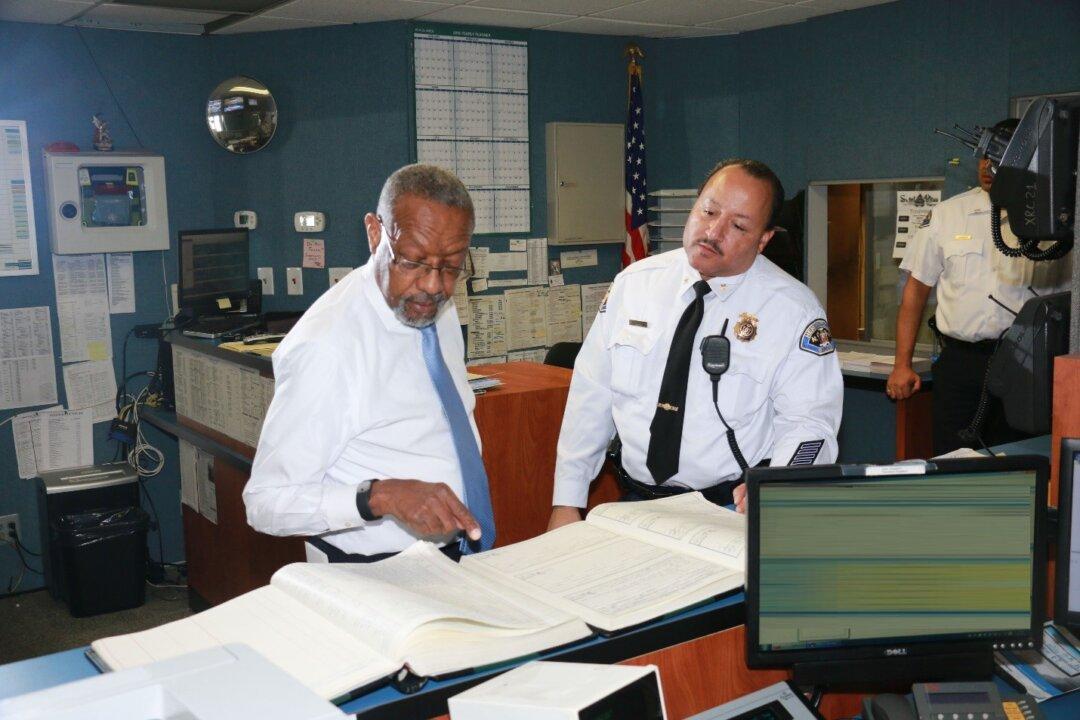The president and many national Democrats have dubbed the Republican Party as the “Party of No” because of its opposition to a long list of domestic and foreign policy bills proposed by Democrats in the House and Senate. Republicans refute such a label, arguing that whenever they have opposed legislation initiated by Democrats, they have offered their own bills, only to have them readily dismissed by the president and his party.
It seems to me that on a national level each party has a point. But if Democrats are looking for a Republican to be their poster child of the “no” vote, all they need do is leave Washington and come to the New York State Assembly in Albany, where they can meet and study the voting record of the Assemblyman for the 8th Assembly District, Republican Michael Fitzpatrick.
Having voted “no” on every state budget with the exception of the 2011–2012 and 2012–2013 budgets since his election in 2002, Fitzpatrick, the married father of two adult children, could immediately become the “no” vote poster child for these Democrats—who would also learn that Fitzpatrick over that same time voted against any bill that contained an increase in business, property, or personal taxes or contained any hikes in fees paid to governmental agencies. Based upon this record, these Democrats would come to understand why Fitzpatrick is often referred to as “Doctor No” by legislators on both sides of the aisle in the State Assembly Building in Albany.
When I interviewed Fitzpatrick—whose Suffolk County District covers the entire town of Smithtown, and northern parts of the town of Islip—in his Smithtown community office recently, he explained why he is proud of his many “no” votes. “I wear my ‘no’ votes as a badge of honor,” he said, with just a glimmer of a smile on his face. “The bills that I opposed, which unfortunately were passed, were filled with wasteful spending, adding up to more than $6 billion. The citizens of my district, which is composed primarily of middle- and upper middle-class families, are the good, hardworking, family oriented people who pay a disproportionate amount of the tax burden in our state, which, as I’m sure you know, is the highest taxed state in the nation. So, of course, I will vote no on any legislation that will drive our taxes even higher.”
Fitzpatrick, who has a Bachelor of Arts in Business Administration and has worked for 14 years in the financial services industry, however, was quick to add that he has accomplished far more in the Assembly than simply voting “no” on budgetary measures that he believed contained excessive spending. Noting that he has sponsored or co-sponsored 36 bills during his 11 years in the Assembly, Fitzpatrick stated, “To change the culture in Albany it is not enough to simply be reactive and vote no. It is equally important to be proactive and introduce bills—economic and otherwise—that will actually benefit the citizens of New York state.”
Sponsored Reforms
Asked to cite the three bills he has sponsored of which he is most proud and explain the importance of each, Fitzpatrick unhesitatingly offered the first two, which unsurprisingly to me, concerned issues relating to the budget: “I was proud to have introduced a bill that capped the property tax levy at a level that can not exceed the rate of inflation. This establishes a built in check on government spending which provides an essential safeguard for our taxpayers.
“And, I am also proud of the legislation I have introduced to reform our pension system. Pension costs for the state and local governments are the elephant in the fiscal room. The high and ever escalating costs [of the state pension] will be very difficult to sustain even into the near future. … My legislation would provide tax relief for our overburdened citizens, and at the same time, the bill would provide new state and municipal employees with a pension plan that will be fiscally stable both in the short and long term.”
Because it had nothing to do with the state budget, the third legislative proposal he cited came, at first, as a surprise to me. “I sponsored a bill that would prohibit the New York State Employees Retirement System from investing in companies that do business with nations that sponsor terrorism such as Iran. I am particularly proud of this law. … It allows New York state to do something to thwart this awful regime from possessing nuclear weapons,” he said.
Fitzpatrick then paused before adding, “Such nuclear weapons in the hands of these Christian- and Jewish-hating Iranian mullahs could result in enormous numbers of death and incalculable destruction to America and to our allies, including our closest ally, Israel, whose very existence would be threatened if Iran, God forbid, possessed a nuclear weapon. … As a devout Catholic and as an ordinary American citizen I marched in the 1980s with my Jewish brothers and sisters on behalf of Soviet Jewry. … And today as an assemblyman I will continue to work together with all good people of all faiths to try to prevent a monstrous anti-Christian, anti-Semitic regime from possessing monstrous weapons.”
Fitzpatrick told me that when he returns to Albany, he will try to convince his colleagues to take a close look at a bill he introduced in the Assembly last January. The bill contains controversial budgetary reforms which include—ending the practice of granting municipal government employees automatic salary increases when their contracts have expired, requiring that all new state and local government workers make payments into a 401(k) style defined contribution to their pension plans, and placing a 2 percent cap on pay raises won by municipal workers in binding arbitration.
While there is virtually no Albany Republican or Democrat who gives this bill, which has drawn harsh criticism from public employee unions throughout the state, any chance of becoming law, Fitzpatrick remains convinced that, whatever the eventual outcome of the bill, he did not waste his time in authoring it.
“Every thousand-mile journey, it has been written, begins with a first step,” he said. “Introducing this bill is an important first step. … Many of my Democratic and Republican colleagues, while probably not planning to vote for the bill now, are at least beginning to acknowledge the credibility of my proposals. These proposals have also gained a great deal of attention from both the print and broadcast media throughout the state. … Regardless of the outcome of the bill, it has begun to drive the conversation in Albany into not if, but rather when and how, we must reform the budget and change the entire budgetary process into one which places the taxpayer first.”
Most New Yorkers, I suspect, would probably say “yes” to that.
Robert Golomb is a nationally published columnist. [email protected]




